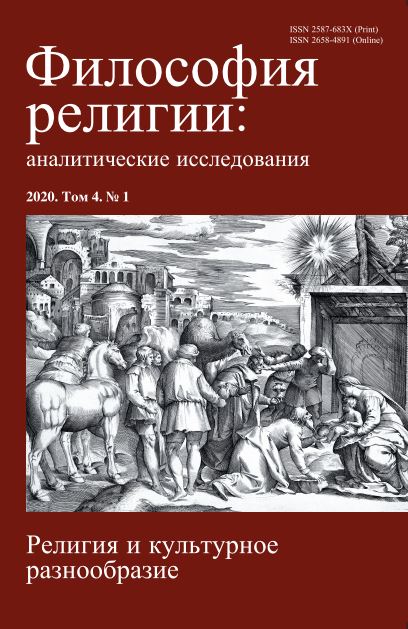Ibn ‘Arabi and Religious Tolerance
With Appendix: «Ibn‘Arabi. Excerpts from “The Meccan Revelations”» (Transl. from Arabic and Comments by Ilshat Nasyrov)
DOI:
https://doi.org/10.21146/2587-683X-2020-4-1-104-127Keywords:
Islam, Sufism, Ibn ‘Arabi, the doctrine of the Unity of Existence, religious universalism, universalism of divine mercyAbstract
The present article is devoted to the study of humanistic dimension of the doctrine of the Unity of Existence advanced by the great medieval Muslim philosopher Ibn ‘Arabi (1165‒1240), also called the Greatest Master. He advocated religious tolerance and universalism of divine mercy. According to his teaching, everything from its eternal dimension is Truth (God). Therefore, nothing is worshiped in itself except God. Every religion is only considered true if its followers recognize other religions as the condition of its existence. Ibn ‘Arabi was condemned by Islamic traditionalists. Nevertheless, his religious pluralism was praised by Muslim modernists in the beginning of the 20th century. Ibn ‘Arabi’s religious tolerance is also supported by some Western intellectuals who hold that his doctrine went beyond religious borders and became universal spiritual teaching.Downloads
Published
2020-06-30
Issue
Section
TEXTS AND INTERPRETATIONS
How to Cite
Ibn ‘Arabi and Religious Tolerance: With Appendix: «Ibn‘Arabi. Excerpts from “The Meccan Revelations”» (Transl. from Arabic and Comments by Ilshat Nasyrov). (2020). Philosophy of Religion: Analytic Researches, 4(1), 104-127. https://doi.org/10.21146/2587-683X-2020-4-1-104-127

 This work is licensed under a
This work is licensed under a 
